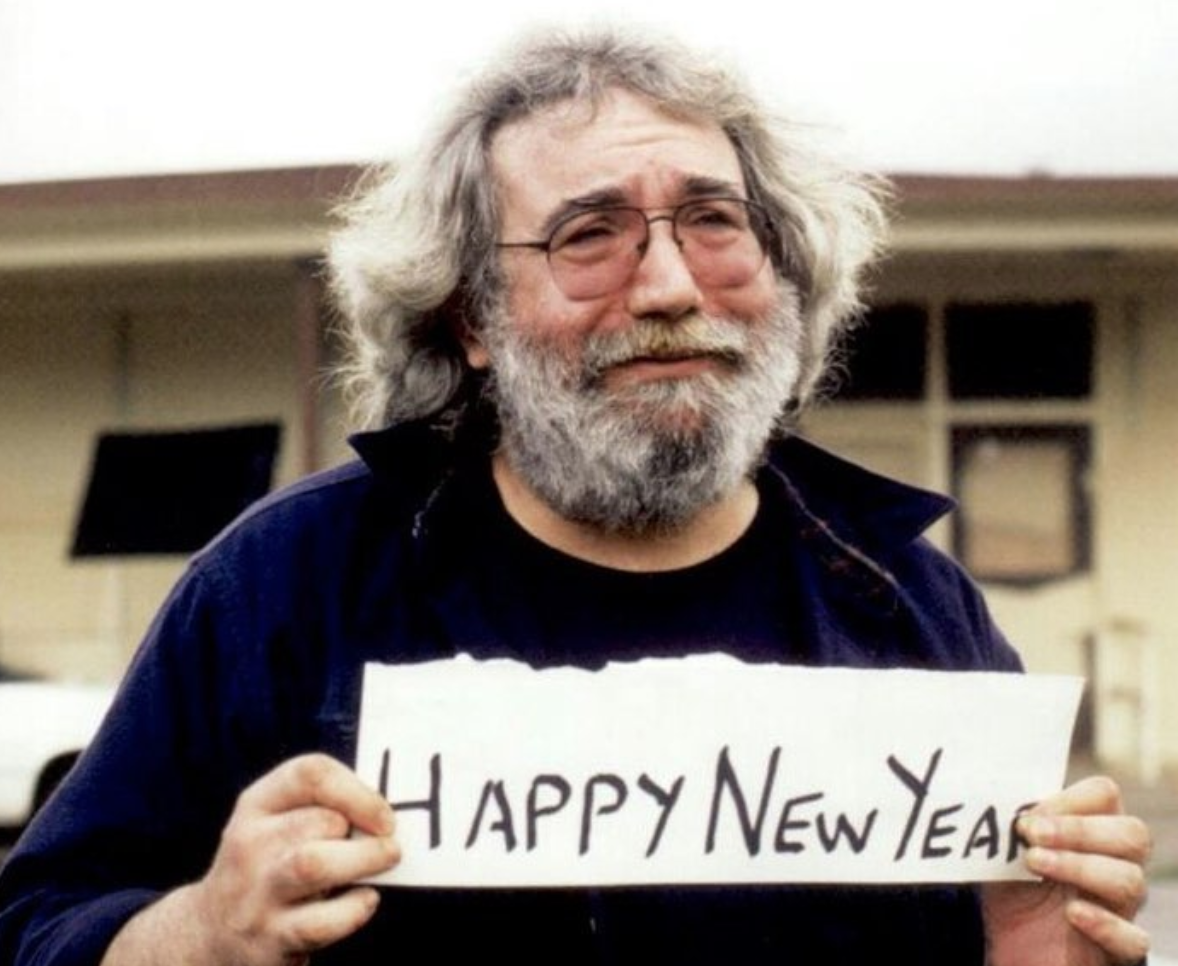Shark Patrol Redux 0004: Fifty-Five years ago last night the Grateful Dead was born.
(The Warlocks, circa 1965)
It was New Year’s in Palo Alto, CA in 1963 when two teenaged high school boys prowled the streets looking for a little action. They were turned away from every club they had tried and were now looking for any sort of distraction. Accompanied by his pal, Bob Matthews, 15-year-old Bob Weir had already been expelled from every high school he’d attended, a streak he’d eventually complete with his exit from Menlo-Atherton High in his hometown. Having already established a reputation for fearlessness, he didn’t hesitate to knock on the back door when he heard sounds emanating from Dana Morgan Music at 537 Ramona.
An instructor waiting for what he assumed were late arriving students had been running scales on a banjo and opened the door. Weir and Matthews politely informed him that it being New Year’s Eve his students were most likely not going to be late arrivals. Seemingly non-plussed and quite evidently unaware of the holiday, Jerry Garcia shrugged his shoulders.
“Want to jam?” he asked?
Thus was set in motion that legendary long, strange trip that would eventually grow into the Grateful Dead. The legendarily iconic band that is now known throughout the world but existed as a primarily American phenomenon from 1965 to 1995 incorporating elements of rock, folk, country, bluegrass, blues, gospel, modal jazz, psychedelia, reggae, and experimental music to create their own distinct sound and style. It was a style that inspired enthralled devotion in some, confused annoyance in others but it became an undeniable part of the American musical milieu.
And when Weir and Matthews accepted Garcia’s invitation the seed was planted. Garcia went to the front of the store where the showroom was located and unlocked it, giving the kids access to instruments they’d only dreamed of playing. The three knocked around some rudimentary standards and Garcia mentioned he was starting a jug band. Weir immediately expressed interest and along with David Nelson and Robert Hunter (who would go on to provide the evocative lyrics to most of Garcia’s compositions) formed Mother McCree’s Uptown Jug Champions. Keyboardist and harmonica ace Ron “Pigpen” McKernan rounded out the group. The son of a Bay Area DJ, McKernan had grown up immersed in black culture and the blues, giving Mother McCree’s an instant credibility of sorts. Though by most accounts Weir could not yet truly play an instrument.
Soon he was under Garcia’s tutelage at Dana Morgan, eventually graduating to his own teaching of beginner and intermediate students when Garcia and a pal, Sandy Rothman, took off on a cross-country bluegrass fact-finding tour in the summer of 1964. It was not long before the influence of the Beatles, the Rolling Stones, a newly electrified Bob Dylan and, (at the time) legal LSD, nudged the Uptown Jug Champs in a more rock n’ roll direction. From these influences, the Warlocks were born. Drummer, Bill Kreutzmann had already provided the new rock outfit with a much-needed swing. The transition to the Warlocks also necessitated replacing bassist, Dana Morgan Jr., with Phil Lesh, a transaction that resulted in Garcia and Weir losing their jobs on the “Dana Morgan Faculty” as well as their accessibility to the music store’s equipment and instruments.
Garcia and Weir eventually took their teaching chops - and propensity for borrowing gear - to Guitars Unlimited in Menlo Park. Lesh, a classically trained trumpeter, picked up the nuances of the bass, in a decidedly quicker fashion than Weir’s guitar acumen developed. The teenager’s severe dyslexia, which had already proven schooling a frustrating endeavor, made reading music virtually impossible. Yet the band soldiered on.
They discovered their name, The Warlocks, had already been taken (by the Velvet Underground who quickly abandoned that for the Falling Spikes before eventually settling on the name they’d make famous) and took on a new mantle, Grateful Dead, cribbed by Garcia from a Funk & Wagnall’s Folklore Dictionary. Grateful Dead describes a series of tales in which "the soul of a dead person, or his angel, shows gratitude to someone who, as an act of charity, arranged their burial,” a theme that appears in the folktales of a variety of cultures.
So many pieces falling into place, so many dominos falling at just the right time, but one is left to wonder: would that momentum have ever begun had Weir not been inspired to knock on that back door and be greeted by Garcia?
Fifty-five years ago, last night.

